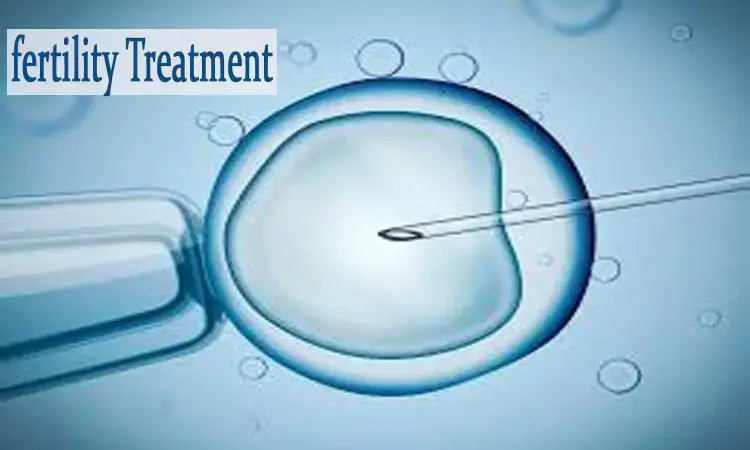- Home
- Medical news & Guidelines
- Anesthesiology
- Cardiology and CTVS
- Critical Care
- Dentistry
- Dermatology
- Diabetes and Endocrinology
- ENT
- Gastroenterology
- Medicine
- Nephrology
- Neurology
- Obstretics-Gynaecology
- Oncology
- Ophthalmology
- Orthopaedics
- Pediatrics-Neonatology
- Psychiatry
- Pulmonology
- Radiology
- Surgery
- Urology
- Laboratory Medicine
- Diet
- Nursing
- Paramedical
- Physiotherapy
- Health news
- Fact Check
- Bone Health Fact Check
- Brain Health Fact Check
- Cancer Related Fact Check
- Child Care Fact Check
- Dental and oral health fact check
- Diabetes and metabolic health fact check
- Diet and Nutrition Fact Check
- Eye and ENT Care Fact Check
- Fitness fact check
- Gut health fact check
- Heart health fact check
- Kidney health fact check
- Medical education fact check
- Men's health fact check
- Respiratory fact check
- Skin and hair care fact check
- Vaccine and Immunization fact check
- Women's health fact check
- AYUSH
- State News
- Andaman and Nicobar Islands
- Andhra Pradesh
- Arunachal Pradesh
- Assam
- Bihar
- Chandigarh
- Chattisgarh
- Dadra and Nagar Haveli
- Daman and Diu
- Delhi
- Goa
- Gujarat
- Haryana
- Himachal Pradesh
- Jammu & Kashmir
- Jharkhand
- Karnataka
- Kerala
- Ladakh
- Lakshadweep
- Madhya Pradesh
- Maharashtra
- Manipur
- Meghalaya
- Mizoram
- Nagaland
- Odisha
- Puducherry
- Punjab
- Rajasthan
- Sikkim
- Tamil Nadu
- Telangana
- Tripura
- Uttar Pradesh
- Uttrakhand
- West Bengal
- Medical Education
- Industry
Severe COVID could reduce male fertility, finds study

Each day, clinicians and scientists are learning more about the acute and long-term health effects of COVID-19 on the body. A new study from the University of Georgia explores the potential impact of the virus on male fertility.
The article, published recently in Nature Reviews Urology, reviews the ways SARS-CoV-2 might target and infect testicular cells. The authors also provide an experimental framework for tracking how the virus could impact testicular function and fertility in acute COVID-19 patients.
"We know that in severe cases, the testis does not do well during COVID," said lead author Clayton Edenfield, a doctoral environmental health science student in UGA's College of Public Health. Edenfield worked under the direction of associate professor Charles Easley, a co-author on the paper.
The authors reviewed the available evidence on SARS-CoV-2's interaction with cells in the body, past research on the impact of other SARS-CoV viruses on the testis and patient reports to determine how COVID could be interacting with testicular tissues and function.
Reproductive organs susceptible to viral infection
Since the onset of the pandemic, scientists have determined that SARS-CoV-2 can infect multiple organs throughout the body through two major proteins: angiotensin-converting enzyme 2 (ACE2) receptors and transmembrane protease serine 2 (TMPRSS2). These proteins act as a door through which the virus can enter the cell.
The testis produces both proteins, making them susceptible to viral infection and potential cell damage, argue the authors, and clinical reports support this.
"There have been autopsy reports that show some sort of viral entry into the testis as well as downside effects of the virus in the testis. So, this is going to be things like inflammation and orchitis, testicular pain, as well as the breakdown of the blood-testis barrier—and even in some cases, the virus is actually in ejaculate," said Edenfield.
Edenfield says that lingering damage to major organs seen in long COVID patients could also happen within the testis, including damage to the blood-testis barrier, which works as a wall to keep out unwanted things like environmental toxins, viruses and the body's own immune cells.
"If it's being damaged by this whole-body immune response, and the virus can interact with the blood-testis barrier, you'd see a very large reduction in fertility," said Edenfield, which could look like a reduction in sperm count or sperm quality.
COVID's possible lingering effects on fertility
The worst-case scenario, Edenfield says, is if the virus damages the organ's germline sperm cells, the cells responsible for creating new sperm, that could have lasting effects on fertility and could even lead to birth defects.
"Fortunately, most people that are of reproductive age are fairly protected from severe cases, but in the 1% that is affected, the virus could cause a lot of damage," he added.
These outcomes on male fertility are still unconfirmed, but the authors proposed a framework of experimental approaches to direct future research.
https://www.nature.com/articles/s41585-021-00542-5
Hina Zahid Joined Medical Dialogue in 2017 with a passion to work as a Reporter. She coordinates with various national and international journals and association and covers all the stories related to Medical guidelines, Medical Journals, rare medical surgeries as well as all the updates in the medical field. Email: editorial@medicaldialogues.in. Contact no. 011-43720751
Dr Kamal Kant Kohli-MBBS, DTCD- a chest specialist with more than 30 years of practice and a flair for writing clinical articles, Dr Kamal Kant Kohli joined Medical Dialogues as a Chief Editor of Medical News. Besides writing articles, as an editor, he proofreads and verifies all the medical content published on Medical Dialogues including those coming from journals, studies,medical conferences,guidelines etc. Email: drkohli@medicaldialogues.in. Contact no. 011-43720751


